“It’s almost impossible to reconcile creativity with cleanliness”, says Marty Neumeier in his great little book “The 46 rules of genius”. In rule #22 – Embrace Messiness – he argues that messiness and creativity go hand in hand. That’s something I felt to be true in my career in advertising. When creatives are at it, “in the zone”, things get messy. And that’s just how it works – creativity is messy.
There are many studies out there that make observations about how the environment around us influences our mood and our actions. I believe today that’s pretty much accepted as universal truth: everybody understands that a quiet space will get you calmer an having too many people in a small space can be very stressful. Just remember your last flight to Sydney.
The nuances of how the environment around you affect your creativity, though, are worth talking about further. A study by Kathleen D. Vohs, as described in her article for the New York Times, shows very clear advantages for creativity in messy rooms:
"Since tidiness has been associated with upholding societal standards, we predicted that just being around tidiness would elicit a desire for convention. We also predicted the opposite: that being around messiness would lead people away from convention, in favor of new directions."
The study proved their predictions to be true. As we know, convention is the arch-enemy of creativity. Vohs’s study goes on to show how subjects in a messy room were 28% more creative then those in tidy spaces. The article is really worth a read.
Convention is the archenemy of creativity. - The Professional Creative
Another easy way to illustrate the correlation between mess and creativity is to look at artists' workspaces. See some pictures of famous artist's studios below: they have massively different styles and techniques, but they have a couple of things in common: creativity and a knack for messiness.
I personally feel the most creative when I pull out my pens and papers, and notebooks, and inks, and utensils. When I roll up my sleeves and get ink all over my hands. I'm sure Pollock felt more creative every time he put on those paint-splattered trousers.
Marty Neumeier makes another great observation when he says we need to clean-up before we start a new project. I always clean up my workspace eventually, and after reading what Neumeier wrote I noticed I always did that before starting on something new.
"It makes perfect psychological sense. Every new project needs a clean slate.[...] But once the gears start turning and the project gets moving, the mess is part of the work. Don't worry about it."
This is a reality that should be understood by companies that rely (and expect) more and more creativity from every employee – but most of all needs to be understood by employees themselves. It doesn't matter what kind of business you're in, you need to be creative to rise above the boring average. Don't be afraid to roll up those sleeves and let the mess help you break out of status quo.
How messy is your workspace? Let us know in the comments.
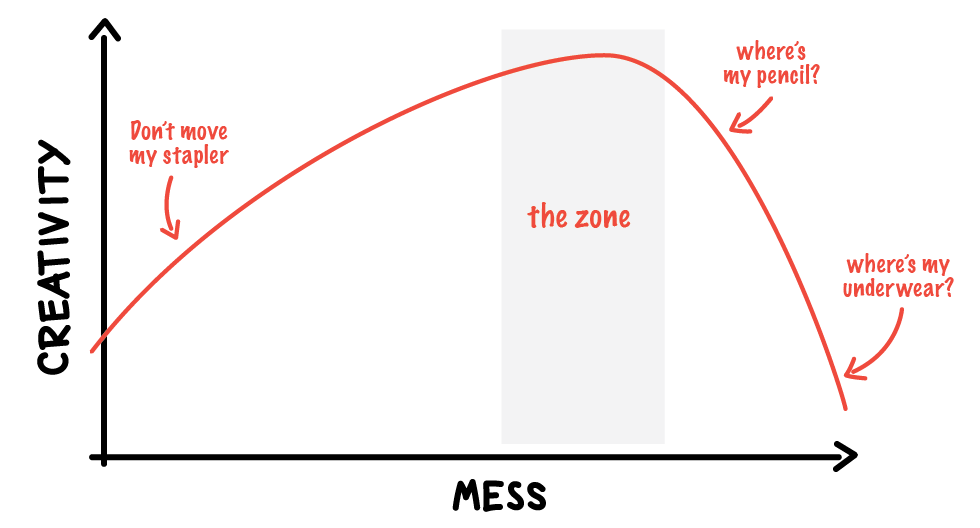
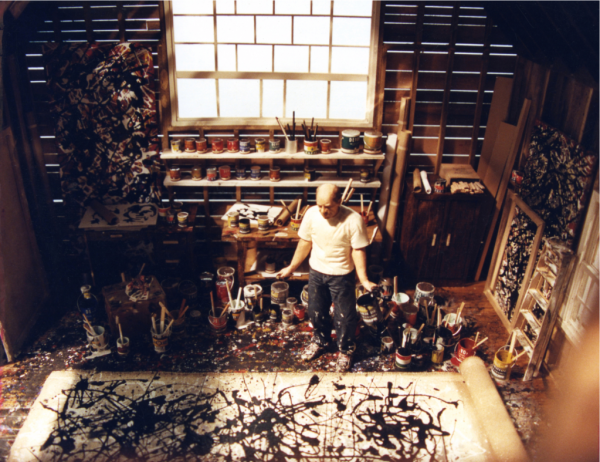
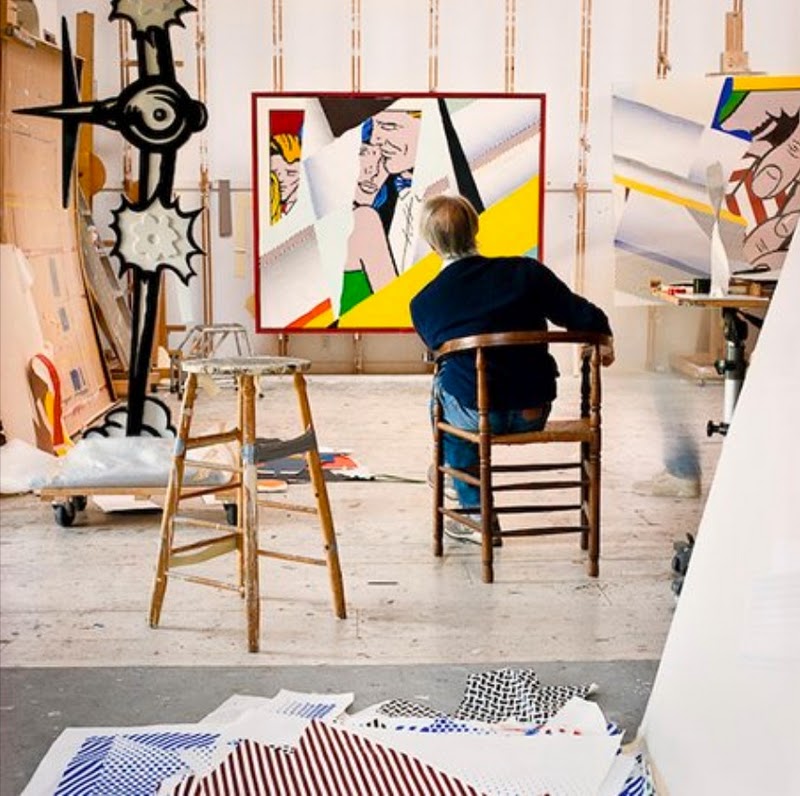
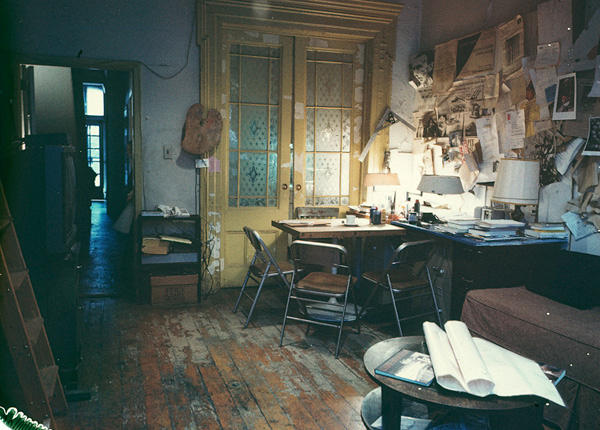
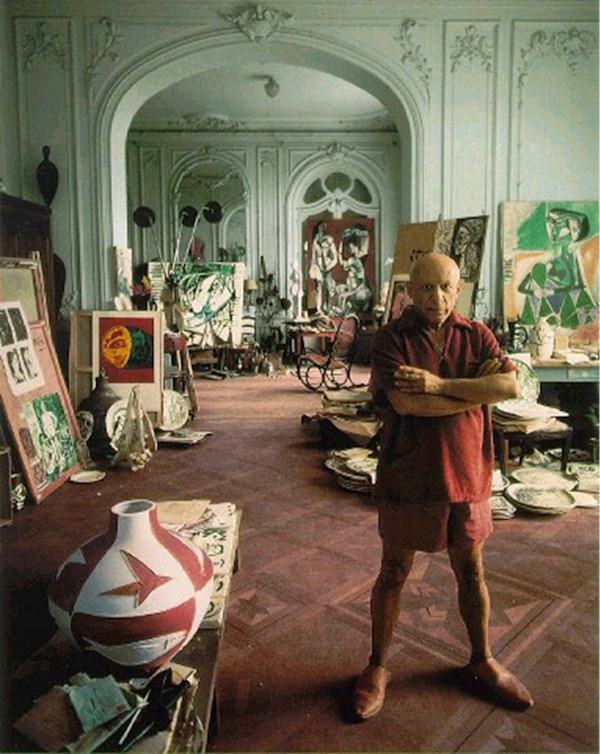
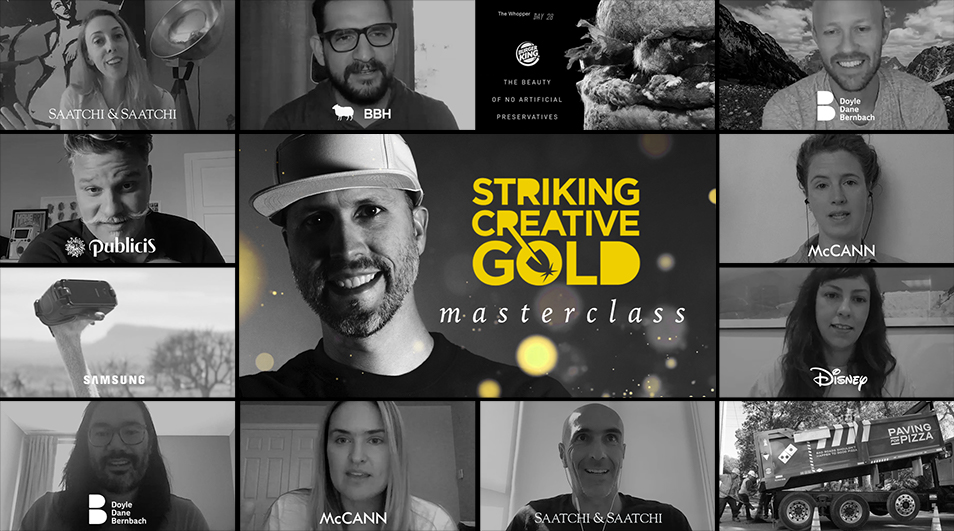
No comments.